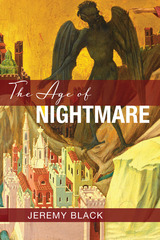
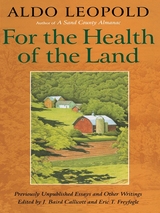
Aldo Leopold's classic work A Sand County Almanac is widely regarded as one of the most influential conservation books of all time. In it, Leopold sets forth an eloquent plea for the development of a "land ethic" -- a belief that humans have a duty to interact with the soils, waters, plants, and animals that collectively comprise "the land" in ways that ensure their well-being and survival.
For the Health of the Land, a new collection of rare and previously unpublished essays by Leopold, builds on that vision of ethical land use and develops the concept of "land health" and the practical measures landowners can take to sustain it. The writings are vintage Leopold -- clear, sensible, and provocative, sometimes humorous, often lyrical, and always inspiring. Joining them together are a wisdom and a passion that transcend the time and place of the author's life.
The book offers a series of forty short pieces, arranged in seasonal "almanac" form, along with longer essays, arranged chronologically, which show the development of Leopold's approach to managing private lands for conservation ends. The final essay is a never before published work, left in pencil draft at his death, which proposes the concept of land health as an organizing principle for conservation. Also featured is an introduction by noted Leopold scholars J. Baird Callicott and Eric T. Freyfogle that provides a brief biography of Leopold and places the essays in the context of his life and work, and an afterword by conservation biologist Stanley A. Temple that comments on Leopold's ideas from the perspective of modern wildlife management.
The book's conservation message and practical ideas are as relevant today as they were when first written over fifty years ago. For the Health of the Land represents a stunning new addition to the literary legacy of Aldo Leopold.
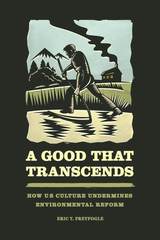
A lawyer by training, with expertise in property rights, Freyfogle uses his legal knowledge to demonstrate that bad land use practices are rooted in the way in which we see the natural world, value it, and understand our place within it. While social and economic factors are important components of our current predicament, it is our culture, he shows, that is driving the reform crisis—and in the face of accelerating environmental change, a change in culture is vital. Drawing upon a diverse array of disciplines from history and philosophy to the life sciences, economics, and literature, Freyfogle seeks better ways for humans to live in nature, helping us to rethink our relationship with the land and craft a new conservation ethic. By confronting our ongoing resistance to reform as well as pointing the way toward a common good, A Good That Transcends enables us to see how we might rise above institutional and cultural challenges, look at environmental problems, appreciate their severity, and both support and participate in reform.
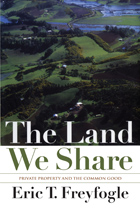
Is private ownership an inviolate right that individuals can wield as they see fit? Or is it better understood in more collective terms, as an institution that communities reshape over time to promote evolving goals? What should it mean to be a private landowner in an age of sprawling growth and declining biological diversity?
These provocative questions lie at the heart of this perceptive and wide-ranging new book by legal scholar and conservationist Eric Freyfogle. Bringing together insights from history, law, philosophy, and ecology, Freyfogle undertakes a fascinating inquiry into the ownership of nature, leading us behind publicized and contentious disputes over open-space regulation, wetlands protection, and wildlife habitat to reveal the foundations of and changing ideas about private ownership in America.
Drawing upon ideas from Thomas Jefferson, Henry George, and Aldo Leopold and interweaving engaging accounts of actual disputes over land-use issues, Freyfogle develops a powerful vision of what private ownership in America could mean—an ownership system, fair to owners and taxpayers alike, that fosters healthy land and healthy economies.
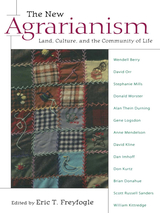
The engaging writings gathered in this new book explore an important but little-publicized movement in American culture -- the marked resurgence of agrarian practices and values in rural areas, suburbs, and even cities. It is a movement that in widely varied ways is attempting to strengthen society's roots in the land while bringing greater health to families, neighborhoods, and communities. The New Agrarianism vividly displays the movement's breadth and vigor, with selections by such award-winning writers as Wendell Berry, William Kittredge, Stephanie Mills, David Orr, Scott Russell Sanders, and Donald Worster.
As editor Eric Freyfogle observes in his stimulating and original introduction, agrarianism is properly conceived in broad terms, as reaching beyond food production to include a wide constellation of ideals, loyalties, sentiments, and hopes. It is a temperament and a moral orientation, he explains, as well as a suite of diverse economic practices -- all based on the insistent truth that people everywhere are part of the land community, as dependent as other life on its fertility and just as shaped by its mysteries and possibilities.
The writings included here have been chosen for their engaging narratives as well as their depiction of the New Agrarianism's broad scope. Many of the selections illustrate agrarian practitioners in action -- restoring prairies, promoting community forests and farms, reducing resource consumption, reshaping the built environment. Other selections offer pointed critiques of contemporary American culture and its market-driven, resource-depleting competitiveness. Together, they reveal what Freyfogle identifies as the heart and soul of the New Agrarianism: its yearning to regain society's connections to the land and its quest to help craft a more land-based and enduring set of shared values.
The New Agrarianism offers a compelling vision of this hopeful new way of living. It is an essential book for social critics, community activists, organic gardeners, conservationists, and all those seeking to forge sustaining ties with the entire community of life.
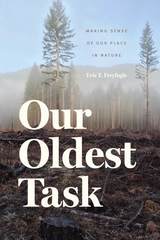
Passionate and pragmatic, extraordinarily well read and eloquent, Freyfogle details a host of forces that have produced our self-defeating ethos of human exceptionalism. It is this outlook, he argues, not a lack of scientific knowledge or inadequate technology, that is the primary cause of our ecological predicament. Seeking to comprehend both the multifaceted complexity of contemporary environmental problems and the zeitgeist as it unfolds, Freyfogle explores such diverse topics as morality, the nature of reality (and the reality of nature), animal welfare, social justice movements, and market politics. The result is a learned and inspiring rallying cry to achieve balance, a call to use our knowledge to more accurately identify the dividing line between living in and on the world and destruction. “To use nature,” Freyfogle writes, “but not to abuse it.”
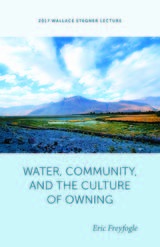
Building on these cultural critiques, Freyfogle takes up the issue of private property rights, highlighting the longstanding flexibility of this key American institution as well as the moral imperative to ensure that property rights aren’t used in ways that harm communities. Outdated understandings about private property, he concludes, have further confused our understanding and made sensible solutions to water problems even harder to imagine. Water-policy reform won’t happen, Freyfogle argues, until we reconsider how we understand nature and take charge of the institution of ownership, recasting it so as to increase the benefits it generates for everyone. If we can do that, solutions to water troubles could prove easier than we expect. The work concludes with an original, sweeping policy proposal to resolve the West’s water shortages and meet environmental needs in ways fair to all.
This lecture was presented on March 22, 2017, at the 22nd annual symposium sponsored by the Wallace Stegner Center for Land, Resources and the Environment at the S. J. Quinney College of Law, University of Utah.
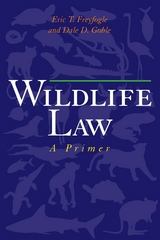
Authors Eric T. Freyfogle and Dale D. Goble are legal scholars who are experts in wildlife law. This book is the first ever to survey the entire field, covering state and federal law with a strong grounding in wildlife science. The writing style is lively and engaging, with descriptions of unusual and intriguing cases that illustrate key points and bring to life the importance and intricacies of the field.
The book includes thirteen chapters on topics such as
• what wildlife law is, what it covers, and what it seeks to achieve;
• constitutional issues and key federal statutes;
• wildlife liability issues, from spider bites to escaped zoo animals;
• state game laws, hunting and fishing rights of Indian tribes;
• and the Endangered Species Act.
Wildlife Law fills a long-standing gap in the literature and introduces readers to the basics of wildlife law while exploring such current controversies as endangered species protection, tribal fishing rights, game ranches, and the challenges of constructing wildlife corridors. It is a much-needed addition to the bookshelf of everyone working with or concerned about wildlife in the United States.
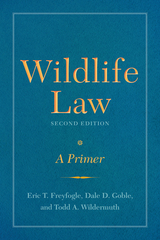
This revised and expanded second edition retains key sections from the first edition, describing basic legal concepts while offering important updates that address recent legal topics. New chapters cover timely issues such as private wildlife reserves and game ranches, and the increased prominence of nuisance species as well as an expanded discussion of the Endangered Species Act, now more than 40 years old. Chapter sidebars showcase pertinent legal cases illustrating real-world application of the legal concepts covered in the main text.
Accessibly written, this is an essential, groundbreaking reference for professors and students in natural resource and wildlife programs, land owners, and wildlife professionals.
READERS
Browse our collection.
PUBLISHERS
See BiblioVault's publisher services.
STUDENT SERVICES
Files for college accessibility offices.
UChicago Accessibility Resources
home | accessibility | search | about | contact us
BiblioVault ® 2001 - 2024
The University of Chicago Press


